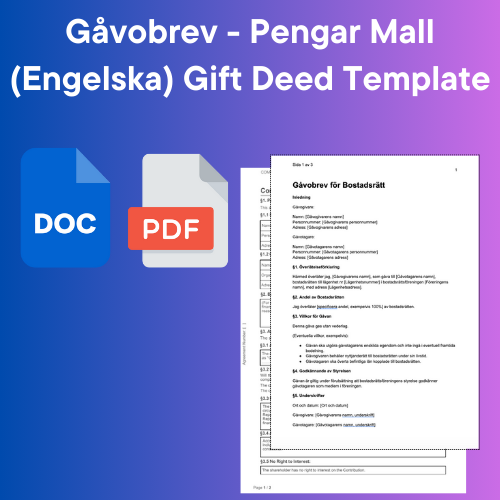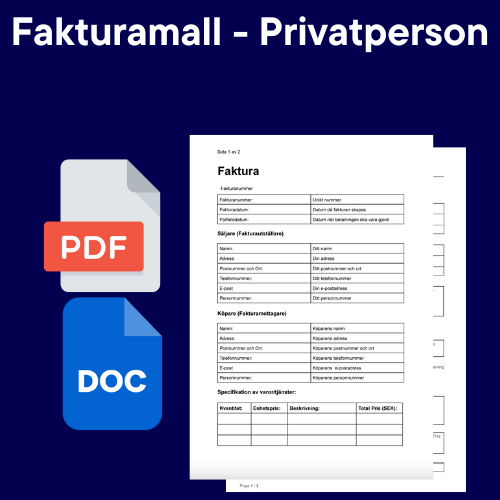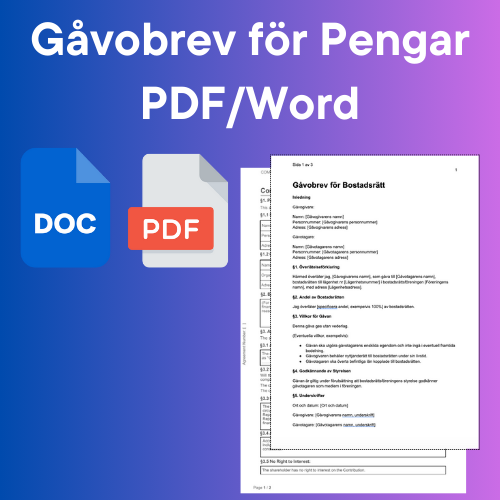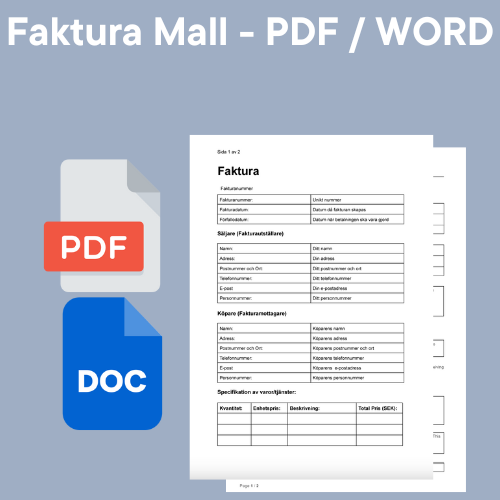Different Types of Lease Agreements - FAQ
Share
Different Types of Lease Agreements
Table of Contents
- 1. Housing rental agreement
- 2. Lease agreement for Premises
- 3. Subletting
- 4. Lease agreement
- 5. Short-term rental
- 6. Sharing agreement
1. Housing rental agreement
This agreement is used when a person rents a residence, such as an apartment or a house. Residential leases are covered by the Land Code (1970:994) and can be:
- Time-limited agreement: The rental agreement is valid for a fixed period.
- Permanent contract: The lease is valid until further notice, i.e. without a fixed end date, but can be terminated with a certain notice period.
2. Lease agreement for Premises
This agreement is used when a person or company rents premises for commercial use. For example, it could be a shop, an office or an industrial premises. Premises are also covered by the Jordabalken, but with certain differences compared to residences, especially regarding notice period and right to extension.
3. Subletting
This agreement is used when a tenant sublet their home to another person. This often requires permission from the landlord and may include:
- Residential rental agreement in second hand: For the rental of a residence.
- Premises lease agreement in second hand: For renting a premises.
4. Lease agreement
A lease is used when someone rents land for various purposes, such as farming, housing (building on leased land), or for business. The lease is divided into four main types:
- Agricultural lease: For agriculture.
- Residential lease: When the land is used for residential purposes, e.g. summer cottages.
- Facility lease: When the land is used for commercial purposes such as parking lots or kiosks.
- Apartment lease: When the land is used for purposes not covered by the other types.
5. Short-term rental
This agreement is used for temporary rentals, such as vacation rentals or business apartments that are rented out for short periods.
6. Sharing agreement
This agreement is used when several parties jointly rent and use a property or premises. This may be the case, for example, when several companies share an office space.
Sources
- Jordabalken (1970:994) : Regulates rental and lease relationships in Sweden.
- The tenants' association : Information about residential leases and rights for tenants.
- Property owners : Information on leases for premises and commercial properties.
By choosing the right type of lease, landlords and tenants can ensure that their rights and obligations are clearly defined and legally binding.




